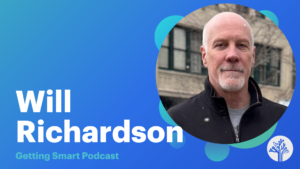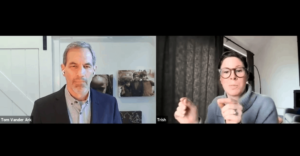What Is Formative Assessment? Voices from the Field

What is formative assessment? What do we hope to gain through formative assessment practice? How does it connect to other initiatives?
These are some of the questions we asked educators at a convening that launched the Michael & Susan Dell Foundation formative assessment initiative, How I Know: Designing Meaningful Formative Assessment”
The Michael & Susan Dell Foundation invites all to join in the journey to understand how students know and to visit the How I Know website.
The project focuses on supporting teachers to improve practice in the Austin, Dallas and Tulsa School Districts and beyond. Voices of teachers, administrators, researchers, experts and other leaders in the field of formative assessment are represented in this podcast as it explores:
- What formative assessment is
- What formative assessment seeks to accomplish
- How formative assessment connects to other initiatives
Special thanks to the following people who are involved in the Michael & Susan Dell Foundation initiative and were interviewed by Tom regarding formative assessment:
- Cheryl Niehaus, Program Manager with Michael & Susan Dell Foundation’s Data Driven Education initiative
- Rob DeHaas, Co-Founder and CEO, and Elizabeth Kastiel, Co-Founder and President of Dallas Teacher Residency, working in partnership with Dallas Independent School District
- Katy Escandell, Administrative Supervisor from Austin Independent School District
- Nancy Gerzon, Project Director with WestEd’s Learning Innovations
- Tracy Nájera, Senior Consultant with Education First
- Danielle Neves, Executive Director of Teaching and Learning from Tulsa Public Schools
- Stephanie Peppers, 1st Grade Teacher with Tulsa Public Schools
Please be sure to visit the How I Know website by clicking the button below:
How I Know Website
Key Takeaways From This Episode:
[1:28] Tom asks Cheryl what formative assessment is and why it’s important now.
[3:28] Danielle’s thoughts on formative assessment.
[4:46] Formative assessment; broader than reading, writing, and problem-solving.
[5:15] What formative assessment is to Elizabeth.
[5:48] A variety of strategies; Robert’s thoughts on formative assessment and the importance of teachers working with the students.
[6:27] How Elizabeth views formative assessment from both the students’ and teachers’ perspectives.
[6:37] Nancy speaks about the process of formative assessment and teachers’ role in the process.
[7:30] How Stephanie works with primary school students in regard to formative assessment.
[8:11] The tools and strategies that formative assessment includes.
[9:30] Katie speaks about the different forms formative assessment can come in.
[10:14] Katie’s thoughts on extended challenges, promoting deeper learning, and rethinking learning experiences.
[12:14] What Danielle, Robert, and Elizabeth want from the initiative and their hopes for the next couple of years.
[15:04] Further thoughts from Nancy, Stephanie, and Tracy on formative assessment.
[16:14] How Stephanie sees the “How I Know” initiative helping in her classrooms in the future.
[17:14] Hopes for the future for the school districts as a result of the initiative.
[18:22] Why this initiative is so timely right now and how it complements other initiatives.
[19:19] How formative assessment practice is critical to creating more personalized learning models.
[20:19] What success will look like, if all goes as planned.
Read More
- How I Know Website
- Scaling Formative Assessment: The How I Know Project
- Better Formative Feedback: Work Worth Doing in a Place Worth Being
This post is a part of a series focused on the “How I Know: Designing Meaningful Formative Assessment” initiative sponsored by the Michael & Susan Dell Foundation. See the How I Know website (www.formativeassessmentpractice.org) and join the conversation on Twitter using #HowIKnow
Stay in-the-know with all things EdTech and innovations in learning by signing up to receive the weekly Smart Update. This post includes mentions of a Getting Smart partner. For a full list of partners, affiliate organizations and all other disclosures, please see our Partner page.








Pierre Milot Barreau
Fostering campus collaboration around continuous improvement....Planning and self-study unifies planning, assessment, and outcomes data in a single.
John Schilstra
To grow and hone my formative assessment, it is beneficial to work with my department and bounce ideas off each other and see how we can improve. We all think differently and can help each other with practices that make assessment better.